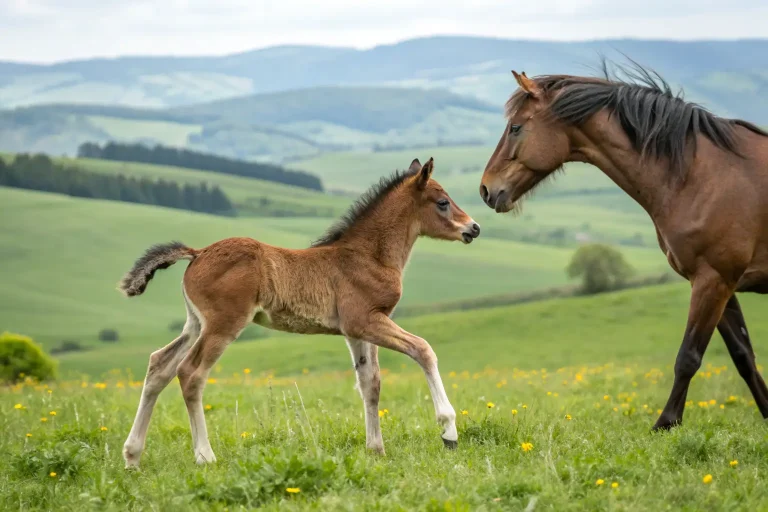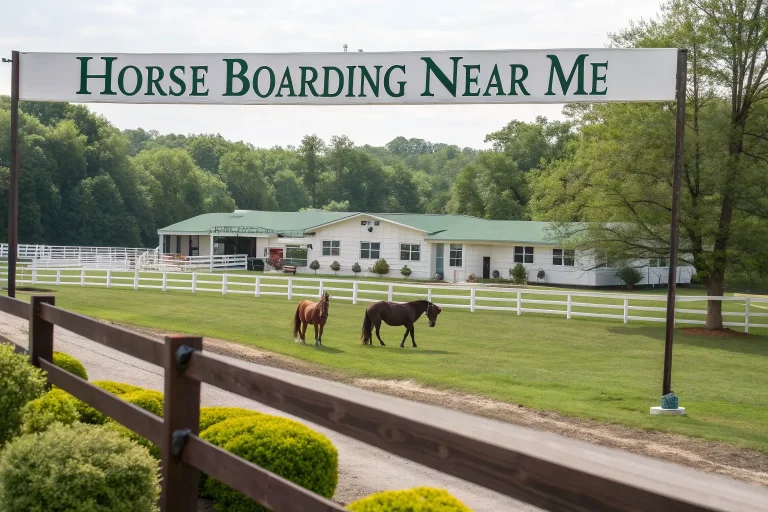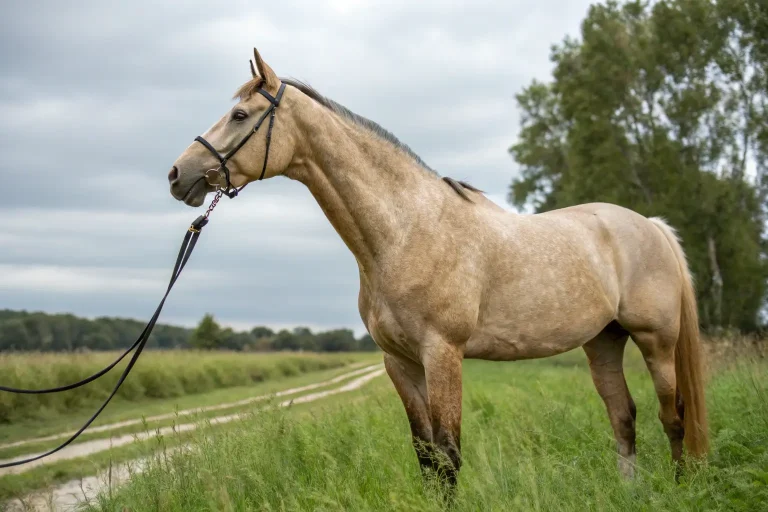Horses for Sale Near Me: 5 Tips to Find Your Perfect Equine Companion
Are you searching for “horses for sale near me” but feeling overwhelmed by the options? Finding your ideal equine partner requires careful consideration beyond just location. Whether you’re a first-time buyer or an experienced equestrian looking to add to your stable, this comprehensive guide will walk you through the essential steps to finding the perfect horse in your area. From understanding different breeds to navigating price considerations, we’ve gathered expert insights to help you make an informed decision on this significant investment.
Introduction
Horses represent one of humanity’s most enduring and meaningful animal partnerships. These majestic creatures have evolved alongside us for thousands of years, transitioning from vital transportation and agricultural assistants to beloved companions, athletic partners, and even therapeutic allies.
Finding the right horse locally isn’t just about convenience—it’s about building a relationship that could span decades. The average horse lives 25-30 years, making this decision comparable to choosing a long-term family member. When searching for “horses for sale near me,” you’re embarking on a journey that requires patience, knowledge, and careful consideration.
Did you know? The average horse owner spends between $4,000-$10,000 annually on basic care—before factoring in training, competition fees, or unexpected veterinary costs. This underscores why finding the right match from the beginning is so critical to long-term success and happiness for both horse and human.
Species Overview
Scientific Name: Equus caballus
Horses belong to the Equidae family, which includes zebras and donkeys. The modern domestic horse (Equus caballus) descended from wild horses that roamed the plains of central Asia and Europe. Through selective breeding over thousands of years, humans have developed over 300 distinct horse breeds worldwide.
Physical Characteristics
Horses vary tremendously in size, from diminutive miniature horses standing under 34 inches tall to massive draft breeds like the Shire that can exceed 18 hands (72 inches) at the withers. Their coloration spans nearly every possible shade and pattern—from solid blacks, bays, and chestnuts to spotted Appaloosas and patterned Paints.
When evaluating horses for sale near you, pay attention to physical indicators of health and soundness: clear eyes, smooth coat, good weight distribution, and even movement without lameness. A horse’s conformation (physical structure) significantly impacts its athletic ability and longevity in various disciplines.
Common Breeds Available Locally
Depending on your location, you’ll likely find several common breeds available:
- Quarter Horses: America’s most popular breed, known for versatility and “cow sense”
- Thoroughbreds: Athletic racing breeds often transitioning to second careers
- Arabians: Ancient breed noted for endurance and distinctive profile
- Warmbloods: European sport horse breeds popular for dressage and jumping
- Draft crosses: Combining size and strength with riding ability
- Various ponies: Smaller equines suitable for children or smaller adults
Each breed has typical characteristics regarding temperament, athletic ability, and maintenance requirements that should factor into your search for horses for sale in your area.
Habitat and Distribution
Natural Environment
Wild horses evolved as plains animals, designed to cover vast territories while grazing continuously. Domestic horses retain these instincts, thriving best with access to pasture, freedom of movement, and social interaction with other horses.
When evaluating horses for sale near you, carefully assess the animal’s current living conditions. A horse kept in a natural environment with adequate turnout time typically develops better physically and mentally than one confined primarily to a stall.
Geographic Availability
The density and types of horses available vary significantly by region. Rural agricultural areas typically offer more options and often lower prices than horses for sale near urban centers. The Southeast and Southwest United States generally have the highest horse populations, while New England and Pacific Northwest regions may have more specialized breeds but fewer options overall.
Climate also influences regional breed popularity—you’ll find more cold-hardy breeds in northern states and heat-tolerant varieties in southern regions. This regional adaptation is worth considering for your horse’s comfort and ease of care.
Adaptations to Domestic Life
Modern horses have adapted to various management systems, from 24/7 pasture living to primarily stall-kept show horses. However, all horses need:
- Regular exercise and movement
- Social interaction (ideally with other horses)
- Consistent access to fresh water and appropriate feed
- Shelter from extreme weather
- Routine healthcare including hoof care, dental work, and preventative medicine
When searching “horses for sale near me,” evaluate how well the horse has adapted to its current management system and whether that aligns with what you can provide.
Diet and Feeding Habits
Natural Feeding Patterns
Horses evolved as continuous grazers, naturally spending 16-20 hours daily consuming small amounts of fibrous plants. Their digestive systems function best with constant intake of forage passing through their specialized hindgut fermentation system.
Basic Nutritional Requirements
When evaluating horses for sale in your area, inquire about their current diet:
- Forage: The foundation of any horse’s diet (hay and/or pasture)
- Concentrates: Grains or commercial feeds (if needed for additional calories or nutrients)
- Supplements: Any additional nutrients required for specific conditions
- Salt/minerals: Essential for electrolyte balance
- Water consumption: Typically 5-10 gallons daily for an average horse
Understanding the horse’s current feeding program helps determine if you can maintain similar nutrition and whether the horse has any special dietary needs that might affect your care costs or management approach.
Feeding Behavior Concerns
When visiting horses for sale near you, observe feeding behaviors that might indicate issues:
- Food aggression
- Cribbing or wood chewing
- Rapid bolting of grain
- Extreme pickiness about feed
- Signs of weight management difficulties
These behaviors can signal management challenges that should factor into your decision-making process.
Behavior and Social Structure
Natural Social Patterns
Horses evolved as herd animals with complex social hierarchies. In natural environments, they live in family groups with clearly established leadership. This social nature means most horses thrive with equine companionship and develop strong bonds with both horses and humans.
When searching for horses for sale near you, consider how the horse interacts with:
- Other horses in its current environment
- Handlers and caretakers
- New people and situations
Communication Signals
Understanding equine body language is essential for successful ownership. Horses communicate primarily through subtle body positions, ear movements, and facial expressions. A horse that communicates clearly with humans demonstrates good training and socialization.
Signs of a well-adjusted horse include:
- Relaxed facial muscles and soft eyes
- Forward or neutral ear position when approached
- Willingness to engage without signs of anxiety
- Appropriate respect for human space without fearfulness
Training and Handling History
Perhaps the most important aspect when evaluating horses for sale locally is their handling and training history. A well-started horse with consistent, kind training will typically be safer and more enjoyable than one with gaps in education or negative experiences.
Key questions about behavior include:
- How long has the current owner had the horse?
- What consistent training approach has been used?
- Does the horse have any known behavioral issues?
- How does the horse respond to new environments?
- What is the horse’s typical routine, and how does it handle changes?
Conservation Status
Domestic Horse Population Trends
Unlike wild equids facing extinction threats, domestic horses aren’t endangered as a species. However, certain historic and rare breeds face population challenges. Organizations like The Livestock Conservancy monitor threatened breeds like Cheval Canadien, Cleveland Bay, and Colonial Spanish horses.
Concerns in the Horse Market
When searching for “horses for sale near me,” be aware of broader market concerns:
- Overbreeding of popular breeds leading to surplus horses
- Economic pressures resulting in neglect or abandonment
- “Kill buyers” purchasing unwanted horses for meat export
- Limited retirement options for aged horses
Responsible horse ownership includes planning for the animal’s entire lifespan—not just its useful riding years.
Adoption Alternatives
Consider adoption from equine rescue organizations when looking for horses for sale locally. Benefits include:
- Lower cost than many private sales
- Supporting humane treatment of horses
- Detailed health and behavioral assessments
- Post-adoption support resources
- Second chances for horses that might otherwise face uncertain futures
Many rescued horses become excellent companions with appropriate retraining and care.
Interesting Facts
- Horses have the largest eyes of any land mammal, with nearly 360-degree vision.
- A horse’s heart weighs around 10 pounds and pumps 5 gallons of blood per minute at rest.
- Horses can sleep standing up thanks to a “stay apparatus” that locks their legs in place.
- The Thoroughbred breed can trace all its bloodlines to just three foundation stallions.
- Horses have an exceptional memory, often remembering people and places for decades.
- The oldest horse ever recorded lived to 62 years of age.
These remarkable animals combine power, sensitivity, and intelligence in ways that have captivated humans throughout history.
Tips for Caring for Horses

5 Key Tips to Find Your Perfect Equine Companion Near You
1. Clarify Your Requirements Before Searching
Before typing “horses for sale near me” into search engines, clearly define:
- Your experience level: Be honest about your capabilities
- Intended use: Trail riding, competition, therapy, companion
- Budget: Purchase price AND ongoing maintenance costs
- Facilities available: Your housing, turnout, and care resources
- Time commitment: How many hours weekly you can dedicate to horse care and riding
Being realistic about these factors narrows your search and increases chances of a successful match. Remember that the least expensive horses often become the most costly in terms of training, veterinary care, and suitability issues.
2. Assemble Your Expert Team
When evaluating horses for sale in your area, don’t go alone. Bring:
- Experienced horse person: Someone who knows you and can assess suitability objectively
- Professional trainer: To evaluate training level and potential behavioral concerns
- Veterinarian: For pre-purchase examinations (essential for most horses)
These professionals help identify potential issues before purchase and provide valuable feedback on suitability. The cost of their expertise is minimal compared to the expense and heartbreak of an unsuitable match.
3. Evaluate Health and Soundness Thoroughly
When you find promising horses for sale near you, investigate their health history:
- Request complete veterinary records
- Examine vaccination and deworming schedules
- Review dental care history
- Check hoof maintenance records
- Ask about previous injuries or illnesses
- Consider a drug test if buying a competition horse
Always get a pre-purchase veterinary examination that includes:
- Soundness evaluation on different surfaces
- Flexion tests of major joints
- Basic blood work
- Dental examination
- Body condition assessment
Remember that some issues might not affect the horse’s suitability for your needs, while others could present significant limitations.
4. Spend Quality Time Before Committing
When you’ve found promising horses for sale locally:
- Multiple visits: See the horse at different times and in various situations
- Handling tests: Groom, lead, and work around the horse yourself
- Riding assessment: Ride in different environments if possible
- Watch others: Observe the current owner or trainer working with the horse
- Trial period: Request a trial period if possible (with appropriate contract and insurance)
Take your time with this decision—rushing leads to mismatches that rarely end well for either horse or human.
5. Consider Total Cost of Ownership
The purchase price represents only a fraction of horse ownership costs. Calculate annual expenses:
- Board/housing: $2,400-$9,600+ annually depending on facility
- Feed and hay: $1,200-$3,600+ annually
- Routine veterinary care: $300-$600+ annually
- Farrier services: $350-$1,500+ annually
- Dental care: $100-$300 annually
- Deworming: $100-$200 annually
- Insurance: Optional but recommended
- Training: Varies widely
- Tack and equipment: Initial and replacement costs
- Transportation: Trailer purchase/maintenance or shipping fees
Being financially prepared helps ensure you can provide appropriate care throughout your horse’s life.
Role in the Ecosystem
Domestic Benefit Systems
While domestic horses don’t fulfill wild ecological roles, they contribute significantly to human communities:
- Agricultural work: Still used for farming in some communities
- Therapeutic applications: Equine-assisted therapy for physical and mental health
- Youth development: Teaching responsibility through programs like 4-H and Pony Club
- Land management: Grazing can help maintain certain landscapes
- Economic impact: The horse industry contributes over $50 billion annually to the US economy
Environmental Considerations
Responsible horse keeping includes environmental stewardship:
- Manure management to prevent water contamination
- Rotational grazing to prevent overgrazing
- Minimal use of harmful chemicals on pastures
- Responsible water usage practices
When visiting horses for sale near you, notice how the current owner manages these aspects—it often reflects their overall approach to horse care.
Conclusion
Finding the perfect horse near you requires patience, knowledge, and careful consideration. Remember that this relationship represents a significant commitment spanning many years. By following the five key tips—clarifying your requirements, assembling an expert team, thoroughly evaluating health, spending quality time before commitment, and considering total ownership costs—you’ll be well-positioned to find a suitable equine partner.
The perfect match brings joy, learning, and companionship that far outweighs the challenges. As the old horseman’s saying goes: “The outside of a horse is good for the inside of a person.” Take your time with this important decision, and you’ll find that the right horse becomes not just a pet or sporting partner, but a transformative presence in your life.
Consider reaching out to local equestrian organizations, attending horse shows in your area, and connecting with reputable trainers as you begin your search for horses for sale near you. The perfect equine companion may be just around the corner, ready to embark on a lifelong partnership.
Frequently Asked Questions
How much does it typically cost to buy a horse locally?
Horse purchase prices vary dramatically based on age, training, breed, and intended use. Near most metropolitan areas, you might find:
- Rescue or project horses: $500-1,500
- Trail/pleasure horses with basic training: $2,000-5,000
- Well-trained show or competition horses: $5,000-15,000+
- Specialized performance horses: $15,000-100,000+
Remember that purchase price is just the beginning—annual maintenance costs typically range from $4,000-10,000 regardless of the horse’s initial cost.
What should I look for when viewing horses for sale near me?
Beyond specific discipline requirements, prioritize:
- Appropriate temperament for your experience level
- Sound movement without lameness
- Good general health indicators
- Age-appropriate condition and behavior
- Willingness to be handled
- Clear history without significant gaps
- Honest disclosure from the seller about any limitations
The horse’s mental suitability for your needs is often more important than physical capabilities or appearance.
Is it better to buy from a private seller or a dealer?
Each option has advantages:
Private sellers:
- May provide more detailed history
- Often have longer relationships with the horse
- Might be more transparent about issues
- Could offer lower prices without markup
Dealers/trainers:
- May offer trial periods and return policies
- Often provide multiple horses to compare
- Usually offer professionally evaluated horses
- Can sometimes provide training support post-purchase
The individual’s reputation matters more than their business model—research thoroughly and check references regardless of source.
Should I get a pre-purchase veterinary exam when buying a horse?
Yes! This is one of the most important investments when searching for “horses for sale near me.” A pre-purchase exam typically costs $300-800 depending on the extent of diagnostics but can save thousands by identifying:
- Lameness issues that might not be visible to untrained eyes
- Chronic conditions requiring management
- Developmental issues in young horses
- Hidden health concerns that could limit usability
Many veterinarians will adjust the exam’s focus based on your intended use—a trail horse doesn’t need the same scrutiny as an elite competition prospect.
How can I verify that a horse for sale is as advertised?
To protect yourself when exploring horses for sale locally:
- Request detailed veterinary records
- Ask for video of the horse in different situations
- Speak with the horse’s veterinarian (with owner permission)
- Contact previous owners if possible
- Research competition records if applicable
- Arrange independent evaluation by a trainer familiar with your discipline
- Request a trial period with appropriate contractual protection
Trust your instincts—if something seems misrepresented, it probably is. The right seller wants an appropriate match as much as you do.







